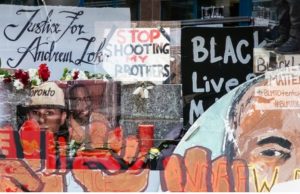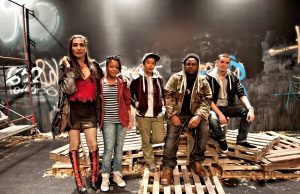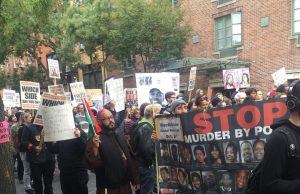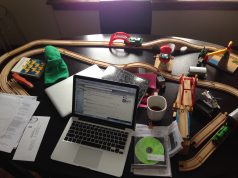On Sunday December 4th the US Army Corps of Engineers refused to approve an easement that would allow the proposed Dakota Access Pipeline to cross under Lake Oahe in North Dakota. Perhaps you, like me, have been following the increasingly violent confrontations between Water Protectors and law enforcement in Standing Rock North Dakota on your Facebook timeline – it’s only in the last couple weeks that “mainstream” news outlets have begun following the story closely (I’m looking at you CNN).
Social Media platforms communicate alternative narratives of conflict from around the world. But the algorithms used to “tailor” what we see to our tastes also tends to reinforce our patterns of interest, creating a skewed perspective on local and world events.
Every so often, something punches through the echo chamber. A story. A face. A movement. Some of these come and go, inevitable victims to the news cycle – and news consumers’ – endless grazing. But other stories hang-on, galvanizing subterraneous currents of thinking, analysis and critique. The Black Lives Matter movement is a robust example of a news story that gained traction and changed discourse since its inception in 2012 – in this case about the relationships between African Americans and police in the United States.
For this edition of the CdnTimes we welcome Guest Curator Donna-Michelle St. Bernard, a Toronto-based emcee, artist and arts administrator. Through the artists she’s curated to share their thoughts, Donna-Michelle positions the Black Lives Matter movement in relationship to a continuing narrative of activism and resistance here in Canada.
First up this week (December 6) is Makambe Simamba, a Calgary-based theatre artist who points to the heterogeneity of the African diaspora in North America and asks difficult questions about voice and ownership of story while working on her solo piece about Trayvon Martin, a 17-year old boy who was murdered in Florida in 2012, and whose death galvanized the Black Lives Matter movement.
Up next (December 13) is Vancouver artist Omari Newton, who untangles the personal, political, and racial narratives that led him to writing The Lamentable Tragedy of Sal Capone – seeking the territory where artistic excellence and political activism intersect.
Our edition will wrap-up on December 20 with words from Curator Donna-Michelle St-Bernard about the relationships and tensions between Canada’s Black liberation movements and those coming out of the United States.
In the deeply unjust world we seem to be living in, that some lives matter more than others is a point of fact that requires relentless resistance. I have to confess that I care most about those who are most like me. The people who have people around them, who melt snow in their hands and hate wet socks, who like a breath of fresh air and might need a nap, who want to make it to tomorrow in the hopes that tomorrow will be a wee bit better than today.












